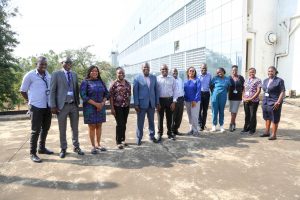Story by Lorraine Anyango
Photos by Ondari Ogega
The Nyanza region faces a severe shortage of critical care services for children, with no dedicated Pediatric Intensive Care Unit (PICU) in the entire area, putting countless young lives at risk.
Obama Children’s Hospital, the primary referral facility in the Nyanza region, highlights the urgent need. A staggering 60% of children admitted to Obama Children’s Hospital are inpatients, and among them, 20% to 40% require intensive care.
The situation is further compounded by the high prevalence of sickle cell disease in the region, particularly in Kisumu, where it accounts for approximately 32% of cases. Children suffering from sickle cell crises frequently require high dependency or intensive care, placing an immense burden on an already strained system.
The lack of critical care beds for children extends beyond Nyanza. Currently, only three public facilities in Kenya offer critical care capacity: Kenyatta National Hospital (6 beds), Kenya University Teaching, Referral & Research Hospital (5 beds), and Mama Lucy Kibaki Hospital (3 beds). All of these facilities are located in or around Nairobi, creating a significant disadvantage for patients from the former Nyanza, Western, and even Rift Valley provinces (with Moi Teaching and Referral Hospital’s capacity issues). Collectively, these limited beds are insufficient to meet the national demand for pediatric critical care services. The Lake Region Economic Bloc, in particular, is severely underserved when it comes to emergency and critical care for its pediatric population.
To address this critical need, a vital partnership has emerged between Safaricom and Jaramogi Oginga Odinga Teaching and Referral Hospital (JOOTRH). Their collaborative effort aims to bridge this life-threatening gap in pediatric critical care.
During a meeting chaired by Kisumu Deputy Governor Dr. Mathew Owili, Safaricom representatives were briefed on the urgent necessity for a dedicated PICU at JOOTRH. JOOTRH’s vision, aligning with its goal of becoming a center of excellent specialized services, includes establishing a 10-bed critical care unit, comprising 5 ICU beds and 5 High Dependency Unit (HDU) beds. Crucially, an existing structure is already in place, requiring only the necessary fittings to become operational and provide these life-saving services.
Dr. Owili expressed gratitude to Safaricom for their ongoing support in Kisumu’s health sector, affirming that the county government and the hospital will work cooperatively to ensure all necessary steps are taken to deliver essential healthcare to its residents.











